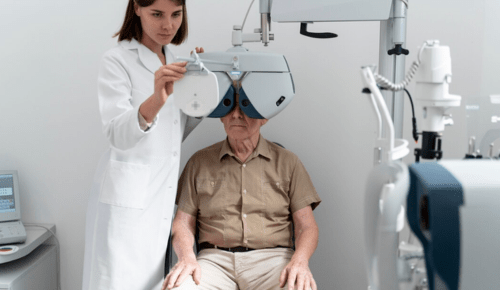Cataracts can blur vision and make daily tasks difficult. Over time, they reduce clarity and limit independence. Cataract surgeries offer a solution by removing the clouded lens and replacing it with an artificial one.
This procedure restores vision and significantly improves the overall quality of life. The effects go beyond just seeing clearly; they influence mobility, emotional well-being, and long-term eye health.
Understanding Cataract Surgeries
Cataract surgeries are one of the most common and successful procedures performed today. They involve removing the natural lens affected by cataracts and implanting a clear artificial lens. This process eliminates the cloudy vision caused by cataracts.
With advancements in medical technology, these surgeries are now safer and more efficient. Most patients experience rapid recovery and immediate improvements in vision. The procedure is performed on an outpatient basis, meaning hospital stays are rarely required.
Cataract Surgeries Improve Vision
Blurry and dim vision are major challenges for those with cataracts. The surgery removes these obstacles and brings back sharpness and brightness. Patients often notice a dramatic improvement in colors and contrasts.
Depth perception also returns, making it easier to judge distances. Night vision becomes clearer, reducing glare from headlights. These changes enhance the overall visual experience and make daily life more comfortable.
The Impact of Cataract Surgeries on Daily Life
Clear vision improves every aspect of life. Simple activities like reading, watching television, and recognizing faces become effortless. The frustration of constantly straining to see is eliminated.
Tasks that require focus, such as cooking or driving, become safer and easier. The cataract surgeries help patients regain the confidence to engage in hobbies they once avoided due to poor vision. The ability to live without relying on others for assistance is a major advantage.
Enhanced Mobility and Independence After Surgery
Limited vision often leads to restricted movement. Walking becomes challenging, and the risk of falls increases. After cataract surgeries, patients experience greater stability and freedom in their movements.
Driving, a major concern for those with cataracts, becomes possible again. Many people regain their licenses and enjoy the independence that comes with it. Outdoor activities also become more enjoyable without the fear of stumbling or misjudging distances.
Emotional and Psychological Benefits of Clear Vision
Vision problems can take an emotional toll. Struggling to see leads to frustration, anxiety, and even depression. Cataract surgeries relieve this stress by restoring clarity and ease in daily tasks.
Patients often feel a boost in confidence. Social interactions become more enjoyable without the constant struggle to recognize faces or read expressions. A renewed sense of self-reliance contributes to a happier and more fulfilling life.
Long-Term Effects of Cataract Surgeries on Eye Health
Cataract surgeries not only restore vision but also protect overall eye health. The artificial lens used in the procedure does not develop cataracts, ensuring long-term clarity.
For some patients, surgery reduces the risk of other eye conditions, such as glaucoma. Regular follow-ups help monitor vision and detect any potential concerns early. Maintaining eye health after surgery ensures lasting benefits.
Conclusion
Cataract surgeries bring life-changing improvements. They restore vision, enhance mobility, and boost emotional well-being. Everyday activities become easier, and independence is regained.
With modern advancements, these procedures are safer and more effective than ever. The long-term benefits make cataract surgeries a crucial step toward a better quality of life.




